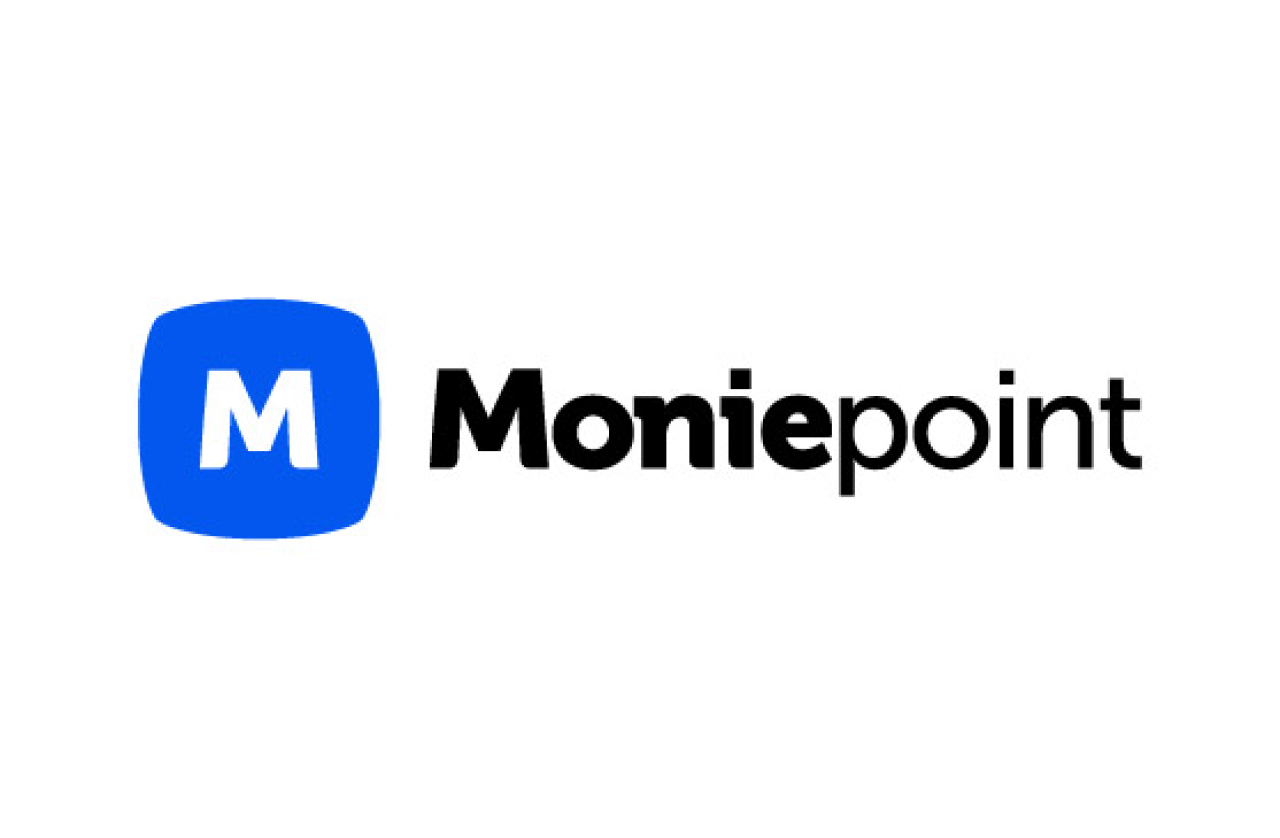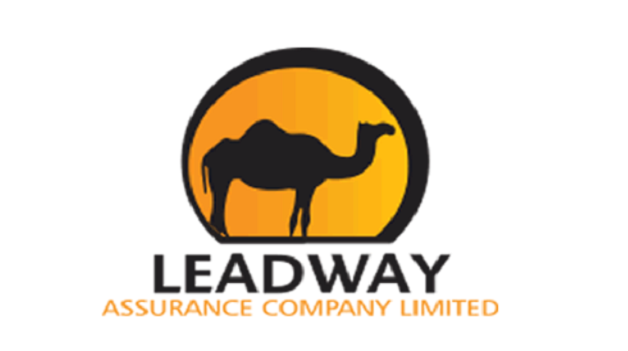E-Financial
Moniepoint, HSBC Boost Female Economy as Winners Emerge @Alliance Hack 2024

Women represent the world’s largest and fastest-growing market—and one that has been largely overlooked by the incumbent and fintech sectors alike. By overlooking the female economy opportunity, fintechs are leaving trillions on the table. Accelerating the financial power of all women by working to champion the female economy and unlocking its full value has been the driving force of the Financial Alliance for Women.

In 2019, the Financial Alliance for Women identified the fintech sector as a significant business opportunity to address key issues in the financial inclusion of women globally, which the traditional sector has struggled with and instituted the Alliance Hackathon to develop scalable solutions that solve key female economy challenges.
This year’s edition, sponsored by Moniepoint Inc and HSBC, with the theme – Shaping Economies through Gender-Intelligent Fintech showcased cutting-edge solutions aimed at advancing financial inclusion and empowerment.
According to Inez Murray, CEO, Financial Alliance for Women, “we make the business case for women’s economic advancement and help them drive profits, grow their programs through key platforms.
“We received a record number of entries to our annual Alliance Hackathon this year, with more than 200 fintechs from around the world applying to take part.
“After pouring over the applications, the field narrowed to 15 exceptional finalists selected to compete in the hack throughout early August, fine tuning their tech-based solutions to facilitate women’s financial inclusion.”
With a call to fintechs around the world to pitch creative and innovative tech-based solutions that expands women business owners’ access to finance; provides non-financial services that accelerate their business growth; supports women to invest and build wealth; and support women to mitigate and adapt to climate change, the shortlist of 15 fintechs that made the final include Penny, Pilou, Rusyve, DREX, QuickLegal, MICROWD, Halal Money Transfer (HMT), Finan Co., Ltd, Warmi, Kitspay Private Limited, HiSofi, Futa, Famunera Limited, and 6C’S Skill’s Exchange.
The shortlisted fintechs received one-on-one mentoring from a highly experienced mentor cohort featuring leaders like Moniepoint’s VP, Corporate Affairs, Edidiong Uwemakpan. They also took part in peer learning clinics focused on building a successful women-centered strategy, and got the chance to pitch in front of a panel of high-impact executives from global financial services institutions.
Creating a solution that helps develop mass market women’s investment capabilities, Pilou, a by-women, for-women platform offering women in Latin America personalized financial education and investment tools alongside low-cost, diversified investment portfolios managed in a transparent manner has emerged first place winner as the Female Economy FinTech of the Year in the 2024 Alliance Hack.
DREX, a renewable energy financing platform dedicated to funding small to medium-sized renewable energy projects and link women-owned businesses in Ecuador in with women-owned solar farms that could cover 100% of their energy requirements took second place as Female Economy Silver Fintech Award winner and Futa, which supports small businesses in Francophone Africa by using payroll data to provide their employees with fast and fair access to financing received the Female Economy Bronze Fintech Award as third place winner.
Tosin Eniolorunda, CEO, Moniepoint Inc, acknowledged that women’s financial inclusion is not just a matter of equality – it’s a powerful catalyst for economic growth and societal progress. “At Moniepoint, we’re committed to playing our part in unlocking the full potential of the Female Economy. This is why we chose to sponsor the Alliance Hackathon.
“We believe that by fostering innovation in fintech, we can accelerate the development of solutions that address the unique financial needs and challenges faced by women around the world.
“From expanding access to finance for women entrepreneurs to providing tools for wealth building and climate action, the challenges tackled in this hackathon align perfectly with our vision for a more inclusive future where societies can experience financial happiness and their dreams are powered,” Eniolorunda said.
Furthermore, Eniolorunda, who also served as a judge on the Hackathon said, “To the winners, you’ve shown us that with the right tools and support, we can make significant strides in bridging the gender gap in financial services and making a real difference to improve women’s lives across the globe. Moniepoint remains committed to supporting this journey, and we look forward to seeing the impact these solutions will have in the years to come.”
Recognizing the contributions of the sponsors, Moniepoint Inc and HSBC, Financial Alliance for Women noted that “today, five years later, we are proud of the great impact we are creating. Not only are we raising awareness within the fintech ecosystem, but we are also witnessing fintechs becoming increasingly gender-intelligent. We would like to thank you for your high-level engagement and commitment to the Alliance Hack. Without your contributions, the hackathon wouldn’t be possible.”
E-Financial
Leadway Partners Firm to Launch Retail Insurance Product for Women

In line with passion and aspiration of the National Insurance Commission (NAICOM) to achieve financial inclusion among Nigerians especially Nigerian women, Leadway Assurance, has partnered with Wafira Ntaba Limited a marketing firm to launch a bespoken insurance policy for Nigerian women.

The product, Leadway Plan B Insurance policy, comes in simplified and affordable packages for as low as N26,000 per quarter, broadening financial inclusion and income protection for women-led small to medium-sized enterprises and lifestyle protection for women across different social strata in Nigeria.
Speaking at the media launch of the product, Leadway ‘s Director Sales, Retail and Partnership, Kike Fischer, shed light on the market approach for the Plan B product, saying “one uniqueness of the Plan B product is in its single-wide coverage from risks and perils related to auto insurance, healthcare, personal accident, fire, burglary, life insurance and education cutting across its different product packages – SME, Corporate and Premier packages.”
Also speaking, the visioner behind the Plan B Insurance for Nigerian women, Ayona Aguilera Trimnell shared the inspiration behind the products saying, “Plan B is an idea that has been in development for 10 years.
“As I began exploring insurance products aimed at women in other countries, I recognised the need for an insurance product that promotes financial inclusion in Nigeria, specifically for women. I believed we could create something that addresses their unique concerns.
Women need to understand how insurance can alleviate their worries and the benefits of being insured. I have personally enjoyed the advantages of insurance for over fifteen years, and I believe other women should have the opportunity to experience the same benefits.”
She said both partners could simplify the benefits of the plan B insurance product to help even the uneducated, understand and be convinced to secure their future by becoming a policyholder.
According to her, it has been proven and tested that women too buy insurance, but more women need to be aware and get insured.
On the market approach for the Plan B product, she said she was confident that these products would help women of all classes in Nigeria create and protect wealth, recover from economic challenges, pursue their purposes, and lead their families with peace of mind.
E-Financial
Sage Grey Finance Partners with Bank of Industry to Empower MSMEs in Nigeria

Sage Grey Finance Limited has joined forces with the Bank of Industry to provide accessible and affordable financing solutions for Micro, Small, and Medium Enterprises (MSMEs) in Nigeria.
This partnership, announced in Lagos, aligns with the Federal Government’s MSMEs Fund and aims to bridge the $236 billion funding gap faced by small businesses, fostering economic growth and job creation.
Eligible MSMEs can access loans of up to ₦5 million at a competitive 9% annual interest rate, with loan processing completed within five working days.
The initiative also includes SME advisory services to equip businesses with tools for sustainable growth.
Executive Director Jumo Atiba emphasized the critical role of MSMEs in national development, highlighting the partnership’s potential to stimulate entrepreneurship and unlock grassroots economic potential.
This collaboration reflects Sage Grey Finance’s commitment to financial inclusion and sustainable development.
The partnership builds on Sage Grey’s history of impactful initiatives, including a $200 million gas processing plant project and youth empowerment programs.
By addressing the challenges of financial exclusion, this collaboration is set to drive inclusive economic progress across Nigeria.
E-Financial
Four Red Flags Nigerians Ignored until CBEX Crashed- DUBAWA

It has not been a pleasant week for thousands of Nigerians who have again fallen for another money scam.

According to DUBAWA, a West African independent verification and fact-checking project, several persons on various social media platforms have begun to count their losses as CBEX, a popular digital asset trading platform, reportedly wiped out over N1.3 trillion from Nigerian investors’ accounts.
The platform collapsed after funds disappeared from users’ wallets, withdrawals were postponed, and communication channels were locked.
Taiwo Owolabi, a security analyst, recently released an analysis showing how investors’ funds were diverted through funnel wallets and finally into a central wallet, which now holds a total of $857 million in USDT.
The security expert concluded that CBEX was just another Ponzi scheme.
When CBEX promised a mouth-watering 100 per cent return on crypto investments in 30 days, many Nigerians rushed to invest just like they did with the defunct MMM.
However, despite the crash, CBEX has asked some investors to pay $100 and $200 verification fees to access partial withdrawals.
Now that the chips are down, it’s time to ask: “How did we not see this coming?”
Below are four red flags about CBEX that investors ignored.
- No regulatory approval
CBEX operated without registration or approval from the Securities and Exchange Commission (SEC) or the Central Bank of Nigeria.
Still, many Nigerians invested, assuming legitimacy because the platform looked flashy. This has become a pattern, as in previous cases where Nigerians got duped, the platforms were unregistered.
SEC has since warned Nigerians against investing in unregistered online forex and digital asset platforms, saying that operating such businesses without registration is now illegal under the new Investment and Securities Act (ISA).
Lesson: Always verify a platform’s regulatory status before putting your money in.
- Anonymous founders
CBEX’s website and Application did not list identifiable owners or executives. To gain credibility, CBEX masqueraded as a crypto platform, talking about “blockchain,” “trading bots,” and “AI-powered systems.” However, it had no verifiable trades or links to legitimate crypto exchanges. It used tech jargon to mislead its users.
Lesson: Transparency is a minimum requirement. If you don’t know who runs it, don’t trust it.
- Unrealistic returns on investment, withdrawal issues
While there is no ideal return on investments (ROI), excessively high ROIs or ones that appear too good to be true are usually a call for caution.
CBEX promised investors returns of up to 100 per cent in 30 days. That looks like a classic Ponzi red flag.
As seen in the past, these kinds of returns are unsustainable, but they remain effective bait that can appeal to anyone’s greed.
At first, CBEX worked. Users were getting paid even though Owolabi claimed the platform initially used one investor’s money to pay another until it could not.
Just before the crash, many users reported delays in withdrawing their funds. CBEX blamed this on “system upgrades” and “network issues,” which is a tactic common with failing schemes.
Lesson: High, guaranteed returns are a red flag, and consistent withdrawal delays indicate that the system is drying up. That’s usually when the exit strategy begins.
- Influencer endorsements and peer pressure
The Fear Of Missing Out (FOMO) does not respect age, especially when influencers, friends, and families are involved. However, the misuse of trust through misinformation is common in fraud schemes.
CBEX’s biggest marketing weapon was social media hype and word-of-mouth pressure. The platform relied heavily on trust networks.
From WhatsApp statuses to Facebook pages and TikTok videos, CBEX grew viral through a coordinated network of testimonials. People shared real and fake proof of payment screenshots and emotional success stories.
When friends and family members innocently vouched for it, people ignored other red flags and pumped money into the scheme.
Lesson: Social proof is not due diligence. Always investigate platforms independently, even if people you trust are involved.
Conclusion
CBEX’s collapse is not new; unfortunately, it may not be the last. DUBAWA urges investors to adopt a fact-checking mindset when approached with financial opportunities. Scams thrive on ignorance and trust. Our best defence is verification, not hope.
DUBAWA is a West African independent verification and fact-checking project, initiated by the Centre for Journalism Innovation and Development (CJID) and supported by the most influential newsrooms and civic organisations in West Africa to help amplify the culture of truth in public discourse, public policy, and journalistic practice.
It has a presence in Nigeria, Ghana, Sierra Leone, Liberia and The Gambia.

 General News3 days ago
General News3 days agoWorld Bank Announces $800m Support for Nigeria’s CCT Initiative

 Telecom2 days ago
Telecom2 days agoBanks, Telcos Mull New Billing Plans for USSD Airtime Payments

 E-Financial3 days ago
E-Financial3 days agoFour Red Flags Nigerians Ignored until CBEX Crashed- DUBAWA

 E-Business2 days ago
E-Business2 days agoNIPOST in Intensive Care, Needs Reforms Need to – Kekemeke

 E-Financial2 days ago
E-Financial2 days agoLeadway Partners Firm to Launch Retail Insurance Product for Women

 Telecom3 days ago
Telecom3 days agoHow Starlink Took over Africa’s Largest Internet Market
- General News3 days ago
MIT MBA Students Explore Digital Innovation at MTN Nigeria

 News2 days ago
News2 days agoDG NITDA Urges Foreign Investors to Tap into Nigeria’s Digital Future




























